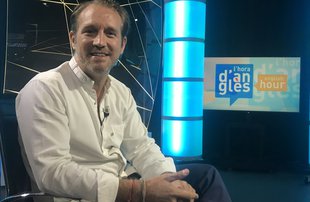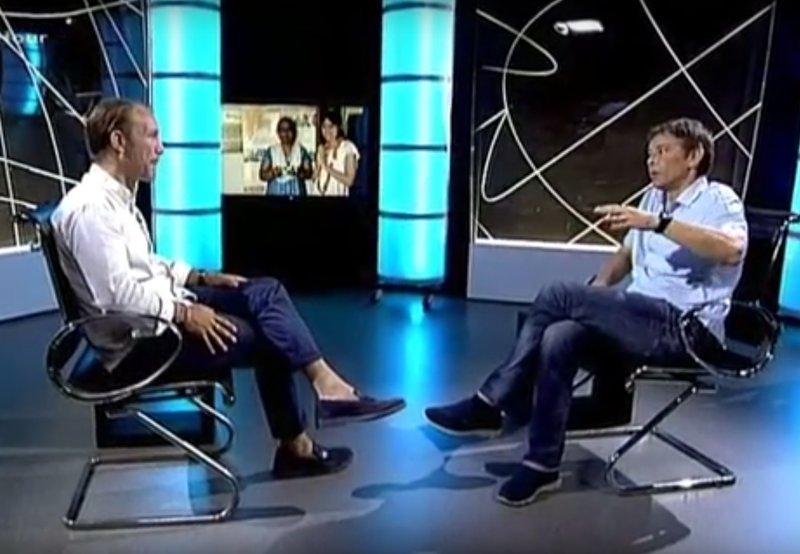Interview
Making a difference in India
Where did it all start?
This adventure started in 2004. I was a fan of humanitarian work and wanted to have the experience of volunteering, so I went to Calcutta and became a volunteer for the Mission of Charity there.
What did you like about the experience?
India is an amazing place; it’s such a different country compared to our western culture. I loved the people and I wanted to travel all over India. So, that’s what I did, and after five years of learning about the NGOs there, I decided to set up Streets of India.
What type of country is India?
India has many different cultures, many different religions, there are 1.3 billion people there, 20% of the global population. India also offers many different experiences, such as spiritual experiences, you can visit ancient temples, there are huge cities, with as many as 20 million people. It has everything. But also, from a professional point of view, as a lawyer and a business adviser, I recommend it as a place for Spanish companies to invest. So, I work part-time as the founder of the NGO and part-time as a businessman.
How did the business side come about?
My first experience in India was through the social work, but after 15 years of going there, travelling and living there, and driving on the streets of Delhi – which itself is a total adventure – I learnt what Indian people are like and also some of the language. But the most important thing is that I learnt how Indian people think. And this is what Spanish companies need to know so that they can communicate.
What type of people does your NGO help?
I like to be in both these worlds because I strongly believe that if we want to change the system, we can do it from within the system. So, as a lawyer I have my business with an office in Barcelona and one in New Delhi and I earn my money from my business, not my NGO, while also some of the companies I help go on to show an interest in supporting the NGO’s work. And what we are doing with Streets of India is working with some communities that are living in very bad conditions, and at the moment we are helping about 500 people, who are all women, children or disabled people, and some of them are orphans. And so we raise money in Spain and then, always working with our Indian counterparts, together we look at how we can use the money to solve the problems of these people, and reduce poverty. We are especially focused on education, and our educational programmes are our main tools to bringing about change. For example, we are working with a group of children between five and 15, most of whom are from a poor background. Their parents do not see how important education is, and so our first job is to convince them to bring their children to our school. However, once they understand the importance of education then our work is done, because the next generation won’t have that problem.
Give us some examples of projects and activities you are doing.
We have about a hundred children from slum areas, in fact, about a million people in Delhi, which has a population of 20 million, live in slums, and there are about 6,400 slums in Delhi. The problem is so large you have to take it step-by-step, so we are focusing on one slum, and we are offering free schooling to 100 children from a community of about 200 families. We offer them a complete education paid for by sponsors in Spain, which amounts to 15 euros a month per child. Also, we focus on women, training them so that they can learn to work as tailors or can work in a beauty salon. Some learn skills that allow them to make decorative items that we sell here and the money goes back to helping them further.
How is the NGO structured?
We always work through local partners who are the ones who execute everything themselves; we are just there to cover certain needs. Here we have some volunteers, helping us with things like social media or raising funds, but there most of our people are Indians. We have teachers, we have doctors, we have managing directors, but all Indians themselves developing the programmes.
What’s next for the NGO?
Right now we need funds for all the things we are doing. For example, these 100 children we are helping, we have sponsors for 70 of them but we need to cover the other 30, at 15 euros a month, as I said before. But we also need volunteers, donors, socially responsible companies. If people watching want to help, they can do something as simple as promoting our work on social media, or they can knock on our door and offer their help. The first place to start if they want to help is to go to our website: streetsofindia.org.

Leave a comment
Sign in.
Sign in if you are already a verified reader.
I want to become verified reader.
To leave comments on the website you must be a verified reader.
Note: To leave comments on the website you must be a verified reader and accept the conditions of use.


